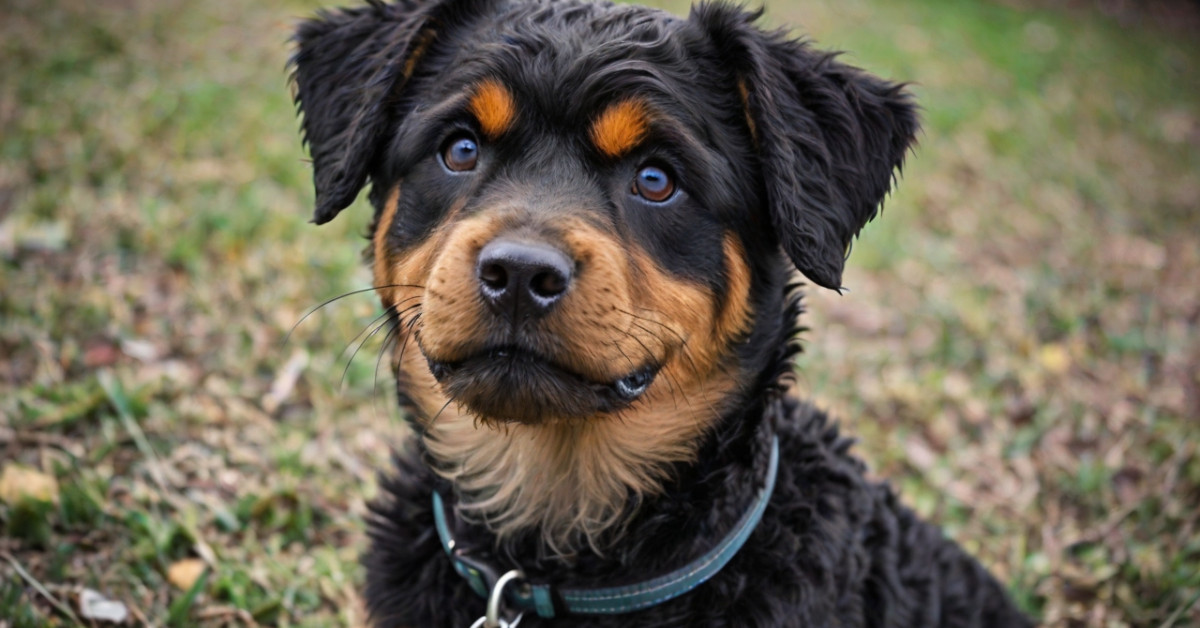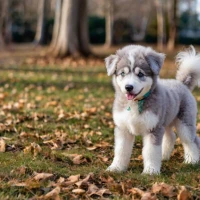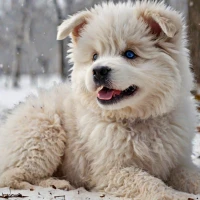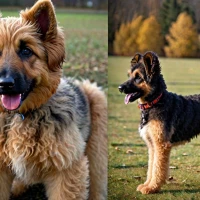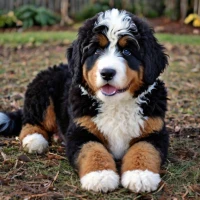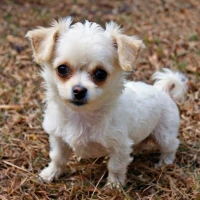The Remarkable Rottle: A Comprehensive Guide to the Rottweiler Poodle Mix
Picture this. You’re strolling through the park on a sunny afternoon, with the sound of children’s laughter filling the air and the scent of fresh grass tickling your nose. That’s when you see him—a magnificent dog with the stature and confidence of a Rottweiler, but with curls that resemble a Poodle. It’s a Rottle, or a Rottweiler Poodle mix. My neighbor Lisa owns one, and boy, they are show-stoppers! That got me thinking about the complexity and beauty of this unique breed, so I decided to dive deep into the world of Rottles.
Origins and History
To understand the Rottle, you gotta know its roots. Combining the mighty Rottweiler with the intelligent Poodle, this hybrid breed brings together the best of both worlds. Honestly, it’s like peanut butter and jelly—individually awesome, but together, simply unbeatable.
Rottweilers are traditionally known for their loyalty and guard-dog capabilities. Did you know that Rottweilers were initially bred by the Romans to drive cattle and pull carts? On the flip side, Poodles, fancy as they are, were originally water retrievers in Germany, not France as many folks think. This crossbreed started gaining traction in the '80s and '90s when designer breeds became all the rage.
Physical Characteristics
Alright, let’s talk looks because these dogs have 'em in spades. Rottles typically inherit the Rottweiler’s robust physique—think strong, muscular build—but with a twist! Those curly or wavy Poodle coats add an exotic flair. And don’t even get me started on the colors; from classic black and tan to unique blends of sable or even parti-color, it’s like a fur-fashion show out there.
Temperament and Personality
You ever met a dog that felt like your best buddy right off the bat? That’s a Rottle for you. They’ve got the fierce loyalty of a Rottweiler combined with the playful intelligence of a Poodle. It’s like they sense your mood and know just how to react—cheering you up when you’re down, calming you when you’re jittery. I remember visiting Lisa during a tough workweek, and her Rottle, named Max, instantly curled up beside me. It felt like Max just knew I needed a furry friend, and honestly, that kinda empathy is rare.
Training and Socialization
Oh boy, now here’s where things get interesting. Training a Rottle can be both a joy and a challenge. These dogs are smart—sometimes too smart for their own good! Poodles rank second in intelligence, while Rottweilers are no slouches either. They pick up commands quickly but can also try to outsmart you.
Common pitfalls? Let’s just say when I tried teaching Max to “sit,” he thought it meant “roll over halfway and look cute.” Consistency is key, my friends.
Health and Wellness
You gotta keep an eye on these pups—genetic blending can sometimes bring in health issues from both parent breeds. They’re generally robust, but watch out for hip dysplasia, a common concern for both Rottweilers and Poodles. Regular vet check-ups? Absolutely non-negotiable.
Here’s something you might not know: Poodles are prone to Addison’s disease, whereas Rottweilers sometimes face heart issues. Your vet can provide tailored advice for these potential problems. Always be proactive.
Diet and Nutrition
What do you feed a dog that’s part powerhouse, part genius? High-quality, balanced meals are a must. Think premium kibble rich in protein and moderate in fat. Avoid fillers—seriously, it’s like feeding an athlete fast food.
Speaking of which, did you know that Rottles can be susceptible to bloat, just like their Rottweiler parents? This means smaller, frequent meals are better than large portions. And for treats, opt for nutrient-rich snacks like carrots or omega-3-rich fish treats. Keeps that coat glistening like a shiny penny!
Grooming Tips
If you think owning a curly-coated Rottle means low maintenance, think again. Their dense, wavy fur needs regular grooming. Who doesn’t love a spa day? Brushing at least 2-3 times a week helps prevent matting and tangling. Max’s coat was always a gleaming example because Lisa was diligent about his grooming routine. She even took him to a professional groomer monthly for a good ol’ pamper session.
Exercise Needs
A Rottle isn’t the sort of dog that’s content with a lazy Sunday routine—they’re active and energetic. Daily walks, at least 45 minutes to an hour, combined with playtime, keep these dogs happy and healthy. Have you considered agility training? They excel at it! And don’t forget mental stimulation; puzzle toys and obedience drills can be lifesavers.
Best Homes for Rottles
Wondering if a Rottle is right for you? They’ve got strong bonds with their families, making them excellent for households where someone’s usually around. Apartments could work, but expect a bit of zoomies—regular off-leash play in secure areas is crucial. Single-family homes with fenced yards? Now you’re talking.
Common Misconceptions
Here’s a nugget of truth: people often mistake Rottles for aggressive because of their Rottweiler heritage. But, let me tell ya, they’re more likely to smother you in kisses than intimidate you. They’re friendly and loving but do need proper socialization to fend off any overly protective instincts.
Fun and Quirky Facts
Did you know that Poodles are hypoallergenic? Cross a Poodle with a Rottweiler and you often get a dog that’s easier on sensitive noses. That’s a win-win in my books!
Another fun tidbit—Rottles are excellent swimmers! Thanks to their Poodle lineage, they have a love for water that can be a blast during summer months. Just toss a ball into the pool and watch them paddle away with delight!
Raising a Rottle Pup
Bringing home a Rottle puppy? Brace yourself for cuteness overload. Those big eyes, floppy ears, and boundless energy can steal anyone’s heart. Start training and socialization early. Puppy classes, puppy playdates—get them out and about.
Adoption and Breeding
When adopting a Rottle, make sure you’re dealing with reputable breeders or rescue organizations. Ask for health clearances, visit the breeding premises, and ensure the pups are raised in a healthy environment. No puppy mills, please!
Cost Considerations
Naturally, quality comes at a price. Rottles can be quite expensive due to their hybrid vigor and features. Expect to shell out anywhere between $800 to $3000. But let’s be real, every penny is worth it when you see that wagging tail at the end of a long day. 🐾
Overall, owning a Rottle is a remarkable experience filled with love, challenges, and blessings. From those intelligent eyes to the boundless energy, they make incredible pets that bring unique joys to our lives. Thank you for taking the time to read about this fascinating breed. Why settle for ordinary when you can have a mix of magnificence and charm?
Keep wagging and smiling! 🐶💖
